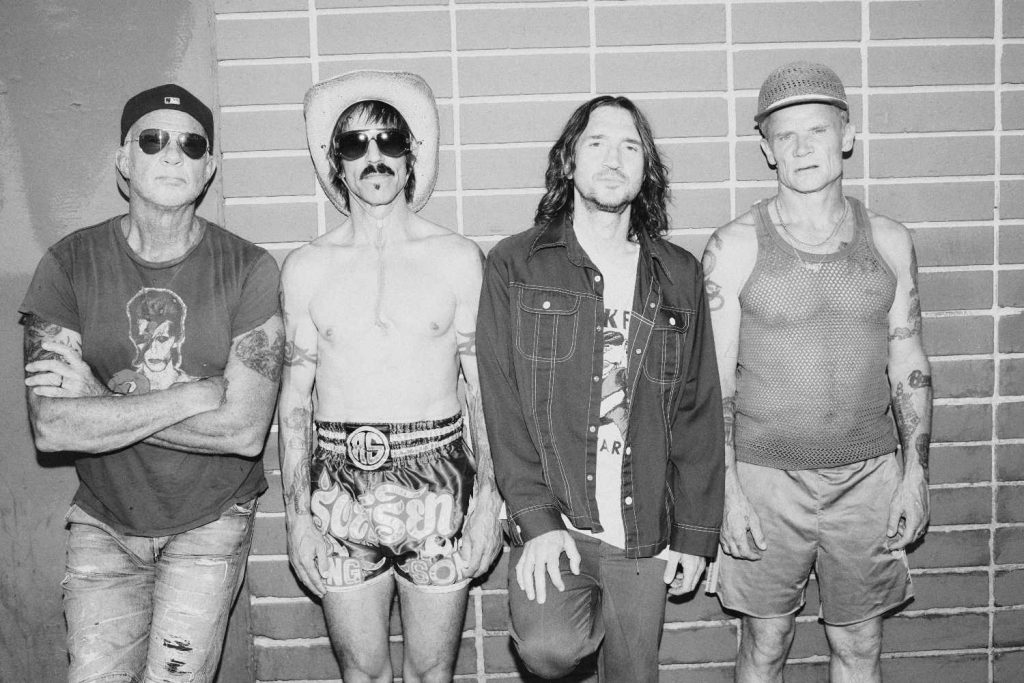“We worked hard on this record – it’s a real labour of love and we tried to express ourselves in the most honest way possible,” he says. “Even when we got down to the mixing and mastering stage, we really pushed hard to capture this energy. So the thought it might go under the radar, or that people might not even like it, it’s always quite terrifying.
“But I think that’s just the nature of what we do. If you start worrying about that and you’re like, ‘oh maybe we should do it like this because that’s what people are doing right now’, once you start going down that road you’re kind of screwed. I think you just have to be as honest as you can and just put it out.”
All We Are is the union of three individuals from distinct cultural backgrounds – O’Flynn from Ireland, bassist Guro Gikling from Norway and guitarist Luis Santos from Brazil. The trio met, formed and continue to live in the city of Liverpool in the North of England. And while they each bring a host of musical influences and experiences to the band, Liverpool’s music history and contemporary music culture has had a significant influence on the band’s creative development.
“There’s a cool scene up here,” O’Flynn says. “It’s small, but there’s a lot of really cool bands that have come out over the last couple of years and that influenced us to start the band. There’s also a creative scene up here where people just get involved and help you. So we had help from loads of bands when we started.
“Obviously the history of the place [has influenced us], particularly with this record. There’s a real post-punk tradition up here, which is something we started exploring when we started writing [Sunny Hills]. We had this kind of change of direction and it was something we started to explore quite a lot.”
When comparing Sunny Hills to All We Are, there are some conspicuous shifts in the songwriting, sonic make-up and the presentation of the songs. Namely, on Sunny Hills, All We Are emerge as a louder, noisier and groovier rock band than on their debut. O’Flynn fills us in on the impetus for this change.
“Around the end of 2015 we went on a writing session down in Margate [on England’s southeast coast],” he says. “We’d gone down there armed with a lot of songs that we were thinking of recording the next album with, but once we were down there we started writing this much more urgent, faster, high-paced music – what you’re hearing on Sunny Hills now.
“After that week was over we were like, ‘we’ve found this way of making music, we’ve found catharsis in it.’ There was a little bit of anxiety within us at the time and we found that playing this music really helped. That was an epiphany for us. We ended up scrapping all the old songs and started to write again.
“It was at that point we started to really explore Liverpool’s post-punk history. We started listening to loads of Adrian Sherwood and New Order and Joy Division, even more than we were already, and started to really be inspired by all that.”
Along with the cathartic benefits of this new sound, the band had uncovered a more personally representative stylistic approach, which is evident across Sunny Hills.
“We really felt better after we performed the songs and when we were writing the songs. We thought, ‘let’s change tack and be really honest with this record and express ourselves.’ Hopefully people will get something out of it and share in that sense of catharsis.”
Sunny Hills by All We Are is out now through Double Six/Domino Records.







